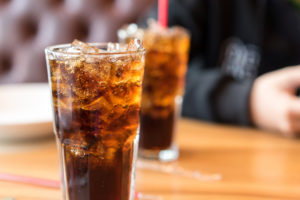
As cities experiment with soda taxes, emerging scholarship reviews their impacts and efficacy.
Beginning with the city of Berkeley in 2015, several American cities—including Philadelphia, Seattle, Boulder, San Francisco, and Oakland—have introduced taxes on sweetened beverages like soda. These taxes range from one to two cents per ounce and can raise the price of a beverage by as much as 75 percent.
Health researchers support soda taxes as a way to combat obesity in America and hope to reduce soda consumption as a way to improve public health and reduce health care costs. Soda taxes can also generate significant revenues for cities, with American cities having generated as much as $133 million annually from such taxes. Soda taxes find critics as well. The Tax Foundation emphasizes them as regressive—impacting lower-income families more so than higher-income ones.
Reviews of soda taxes so far reveal mixed successes. Researchers studying Philadelphia’s tax found reduced sweetened beverage sales in Philadelphia itself but noted increased sales at stores just outside the city. Researchers in California point to surveys in Berkeley demonstrating reduced consumption and claim success.
As more jurisdictions consider passing soda taxes, they could benefit from learning from experiments with soda taxes around the world. This seminar highlights scholarship on how soda taxes affect behavior and public health.
- In the Quarterly Journal of Economics, Hunt Allcott, Benjamin B. Lockwood, and Dmitry Taubinsky suggest a framework to calculate an optimal “sin tax,” and apply their findings to calculate “the optimal nationwide tax on sugar-sweetened beverages.” By considering “consumer bias and externalities, distributional concerns, and revenue recycling through income taxes or income-targeted transfers,” they concluded that the optimal tax is “between 1 and 2.1 cents per ounce,” which would “increase welfare by $2.4 billion to $6.8 billion a year.”
- Stephan Seiler, Anna Tuchman, and Song Yao explore the impacts of soda taxes, specifically in Philadelphia, and offer ideas for tax policy designs. They find that the taxes have led to “a 46% reduction in the quantity purchased of taxed beverages in Philadelphia” but note that “over half of this reduction is offset by an increase in quantity purchased at stores up to 6 miles outside of the city border.” The authors argue that the tax was only “partly effective” at generating revenue because consumers purchased sweetened beverages at stores outside of Philadelphia. Finally, they conclude that “low-income households are more likely to continue to purchase taxed products at a higher price at stores in Philadelphia.” The authors suggest that “widening the geographic area would help raise more tax revenue, whereas narrowing the range of taxed products would help improve nutritional intake at the expense of lower tax revenue.”
- In an article highlighting the Philadelphia Beverage Tax, Ryan Kane and Vasanti Malik of the Harvard T.H. Chan School of Public Health explore the factors behind the tax’s passage. Kane and Malik assert that Philadelphia’s approach to passing a soda tax was novel for its lack of public health framing. Instead of relying entirely on health-based justifications for a soda tax, the administration that implemented the tax framed it as a funding mechanism for community improvement projects. According to the authors, this “non-health frame also allowed for the acquisition of broader support by shifting the focus away from counterarguments regarding government impact upon individual behaviors.”
- Should there be a soda tax? In a recent report, Joyce Beebe, a fellow in public finance at Rice University’s Baker Institute for Public Policy, reviews recent attempts at taxing sugary drinks and identifies practical considerations for policymakers. The evidence of the effectiveness of soda taxes is still growing, according to Beebe. “It is important to gather enough evidence to inform meaningful public policy debates, as well as ensure that the evidence clearly shows that soda taxes can reduce consumption and improve health outcomes,” Beebe argues. She concludes that at present policymakers should promote healthy diets by empowering consumers with improved food and beverage labeling information and promoting nutrition knowledge.
- France introduced in 2012 a national tax on sweetened soft beverages of 7.16 eurocents per liter (approximately 0.23 American cents per ounce at current exchange rates) levied on French importers, manufacturers, and processors. Analyzing this tax in 2019, the University of Bologna’s Sara Capacci and a group of researchers find that the increase in prices from the French tax is passed entirely to consumers for soft drinks and partially for fruit juices. They observe a small general reduction in soft beverage sales of under a half liter per person annually, but also note that the effect is larger for consumers in the top quartile of soft beverage purchasers.
The Saturday Seminar is a weekly feature that aims to put into written form the kind of content that would be conveyed in a live seminar involving regulatory experts. Each week, The Regulatory Review publishes a brief overview of a selected regulatory topic and then distills recent research and scholarly writing on that topic.



